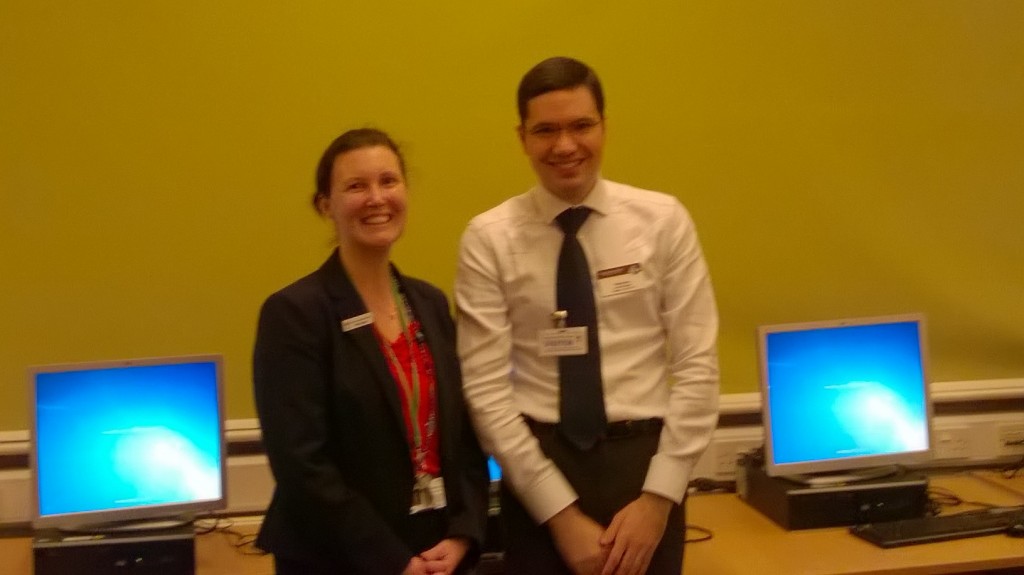The Toastmasters Youth Leadership Program (YLP) is a workshop consisting of eight one- to two-hour sessions that enable participants to develop communication and leadership skills through practical experience. The YLP is presented during or after school.
A local Toastmasters club serves as sponsor and provides a coordinator to present the program. The individual coordinator attends each meeting, where he or she will lead most of the presentations and counsel participants. The school provides a member of staff to support the sessions and to follow up with the young people between sessions. YLPs have also been run at Youth Centres.
Our most recent YLP in London
Florian Bay was the coordinator for the most recent YLP that has been sponsored by a club in London. We asked him to tell us about the experience and what he had learned.

Q: How did you get involved in Youth Leadership?
A: It began with a phone call from a fellow club President who suggested I’d be a good person for this challenge. I‘d previously been made aware of Youth Leadership by one of my mentors Andrew Bennett (our District 91 Youth Leadership Adviser) but did not take the lead in coordinating a project, until that phone call.
Q: What were the objectives for the school for the YLP?
A: The school’s objectives were linked to the IBCC/Career Ready programme aimed at providing middle-achieving young people with transferable skills that can be used in the workplace.
Q: Toastmasters is about teamwork: who was involved?
A: Canary Wharf Communicators sponsored the YLP and provided the equipment to get it running. Visiting Toastmasters running educational sessions were Catherine Casale, Elizabeth Toohig and David Marks.
The key contact at the school was IBCC/Career Ready coordinator Hilde Lewis. Her help was invaluable in making the programme a success. She helped by highlighting the value of the skills the students could learn from the YLP; supporting each session as well as following up with students in between sessions.
Huge credit must go to the student committee itself. The committee members quickly made use of the tools provided to them, primarily spreadsheets, and liaised with Hilde to ensure that roles were filled.
Q: What was a typical meeting like? Were the youngsters enthusiastic?
A: A typical meeting started with table topics. There was an educational segment followed by four speeches and four evaluations.
The youngsters were mostly enthusiastic about the YLP but it took them a few sessions to realise its value and to embrace it fully. In particular, the standard of evaluations and the speeches improved as the sessions progressed. They reached a peak during the final showcase.
Q: What was most challenging?
A: YLP meetings were not always as quiet or disciplined as club meetings. I found this the most challenging part of my role as coordinator, especially as some of the youngsters were louder than others. That was where Hilde’s experience was invaluable and I learned from her.
Q: What was most unexpected?
A: The speech subjects of the students were interesting in their breadth and variety. They included school life, water conservation, racism and the story of England’s first ever black football player.
Q: What advice would you pass on?
A: 1. Ensure that you have full support from the school, including one dedicated teacher acting as co-coordinator
2. Familiarise yourself with the coordinator handbook and the student manual thoroughly
3. Plan the programme ahead and create the necessary tools (planners, agenda templates, explanations of roles)
4. Bring in Toastmasters to run the educational segment of each meeting if possible
5. Keep the educational presentations simple but relevant. The Competent Communicator manual is a great resource to prepare these
Q: What TM skills did you and the team use?
A: 1. Time management – Sessions only last 1h or so and feature 4/5 speeches
2. Planning & organisation – Early planning helps a lot!
3. Delegation – You won’t be at the school 24/7 so the student committee and teacher are key!
4. Improvisation – Things won’t always go according to plan.
Q: Did you gain new skills?
A: When I learned more about the school and the pupils, the first thing I felt was “what have I just got myself into?” My comfort zone expanded as a result of the project. The project also marked a transition for me, from being a club member to someone more involved in wider Toastmasters activities like facilitating workshops.
Q: Now that you’ve completed the YLP how do you see the program and what it can bring to young people?
A: The YLP is great. There is a lot of value in bringing public speaking and leadership skills to young people. This is especially important if they lack confidence and want examples of tangible achievements for job interviews and university applications.

The showcase speeches, evaluations and table topics were excellent. It was interesting to see how impressed the guest teachers were – they only saw the results of the programme at the showcase.